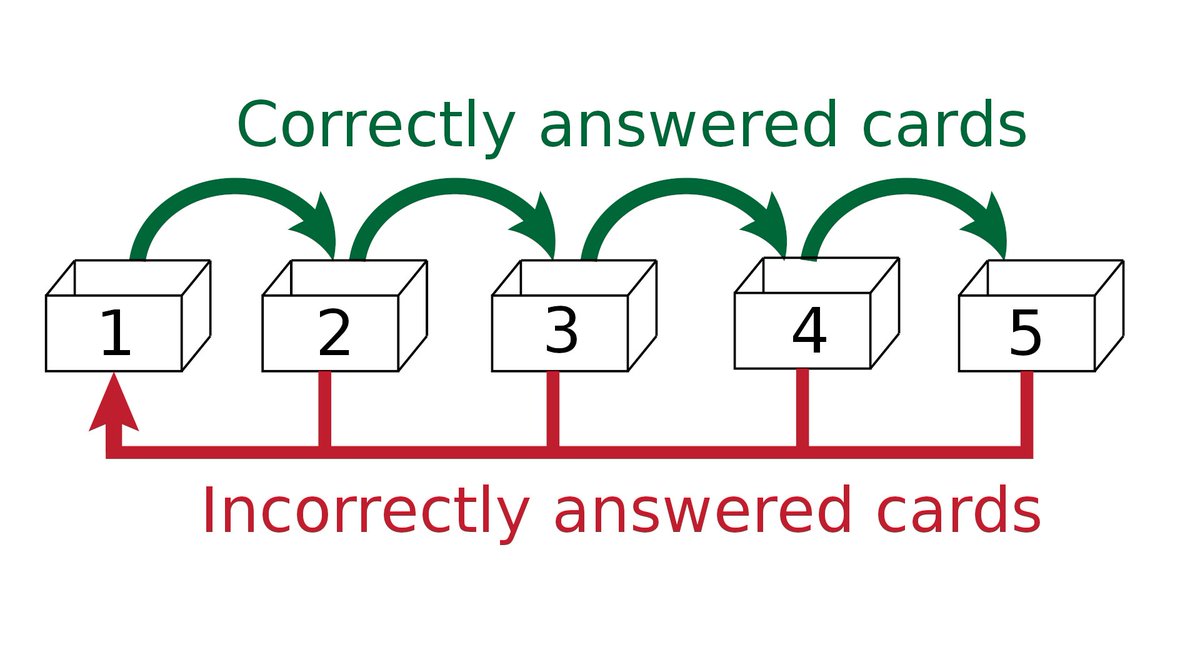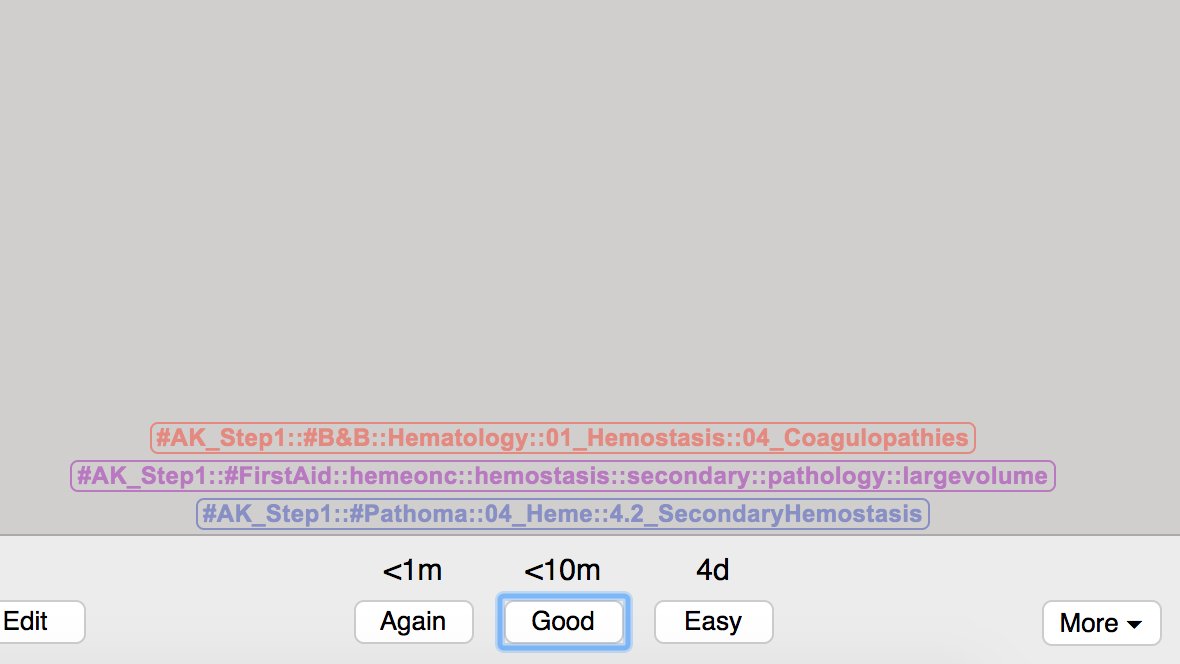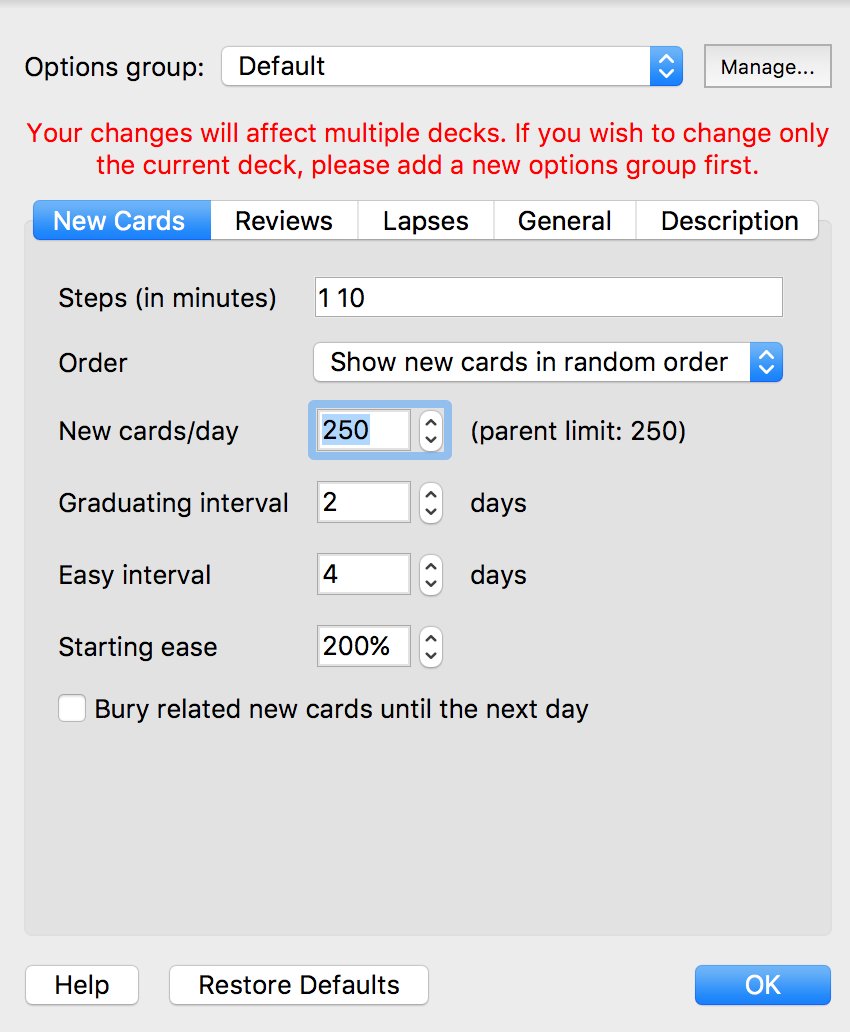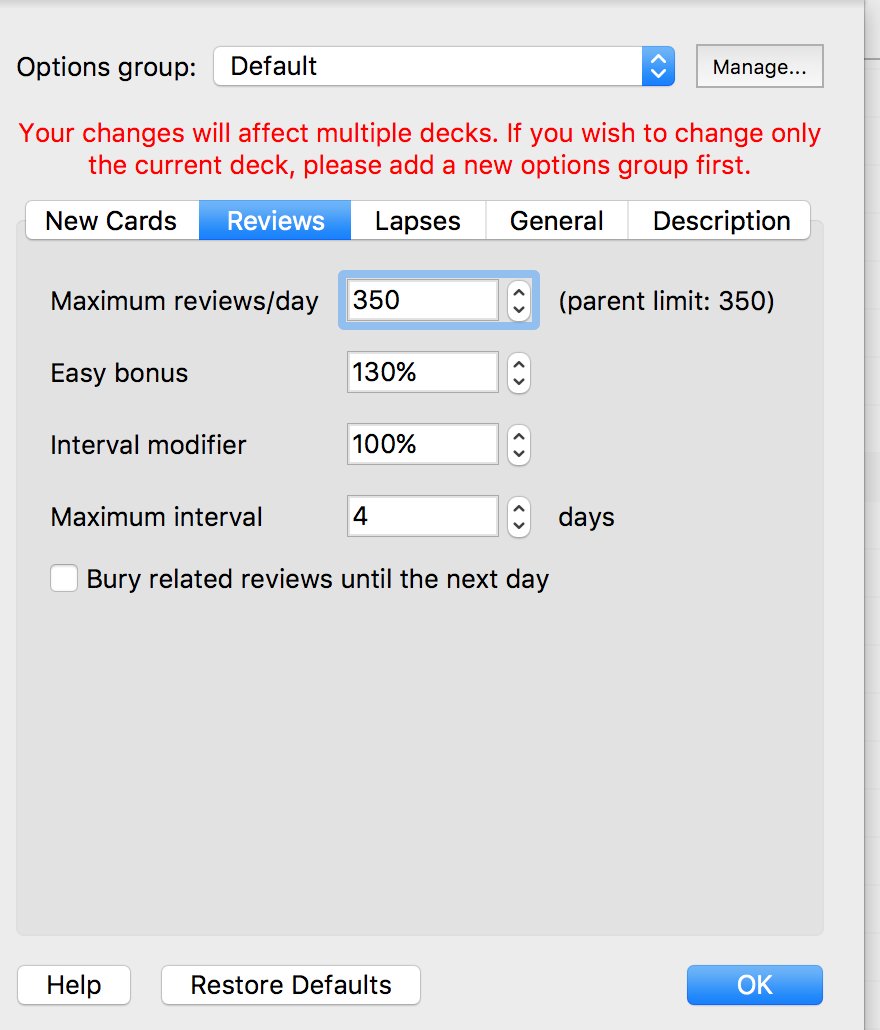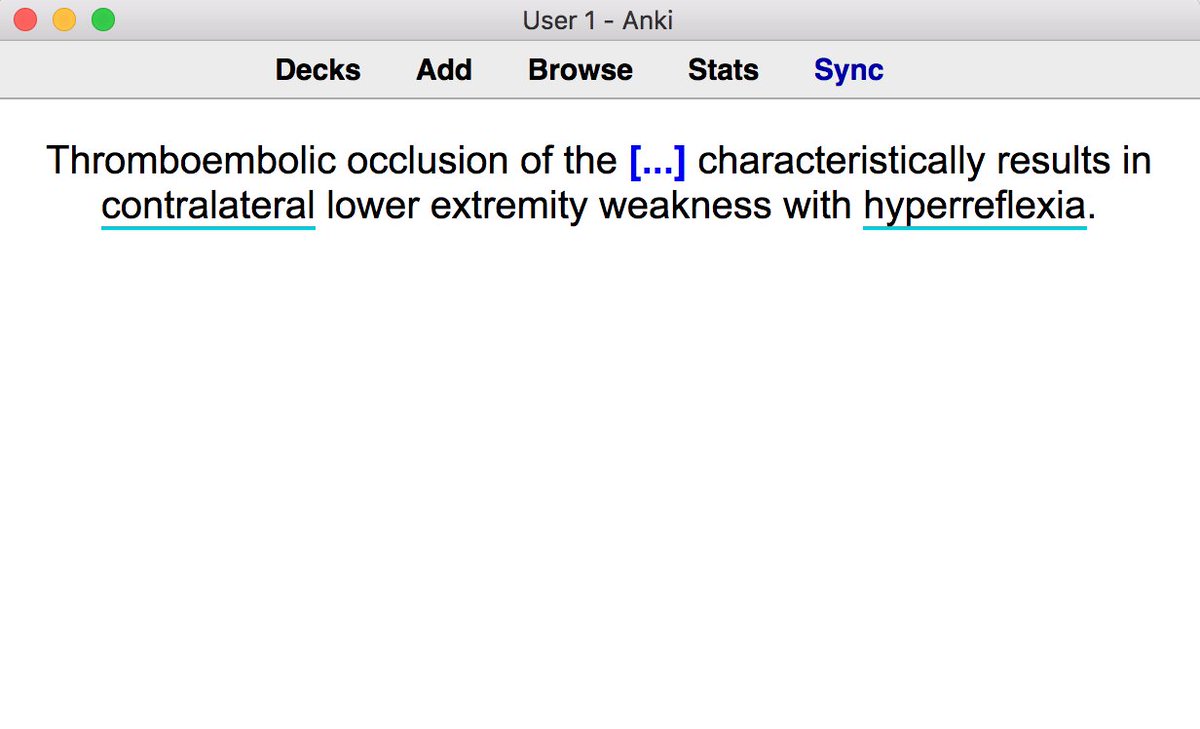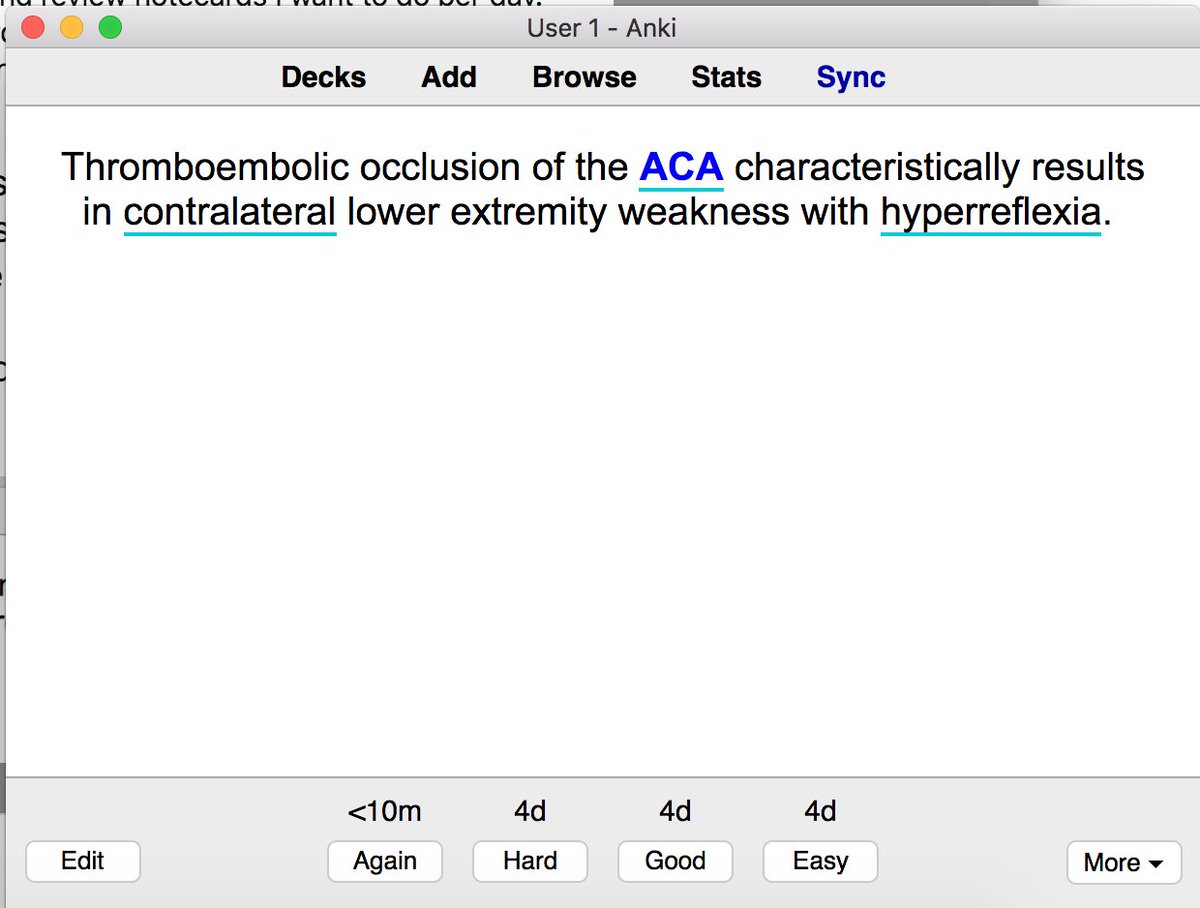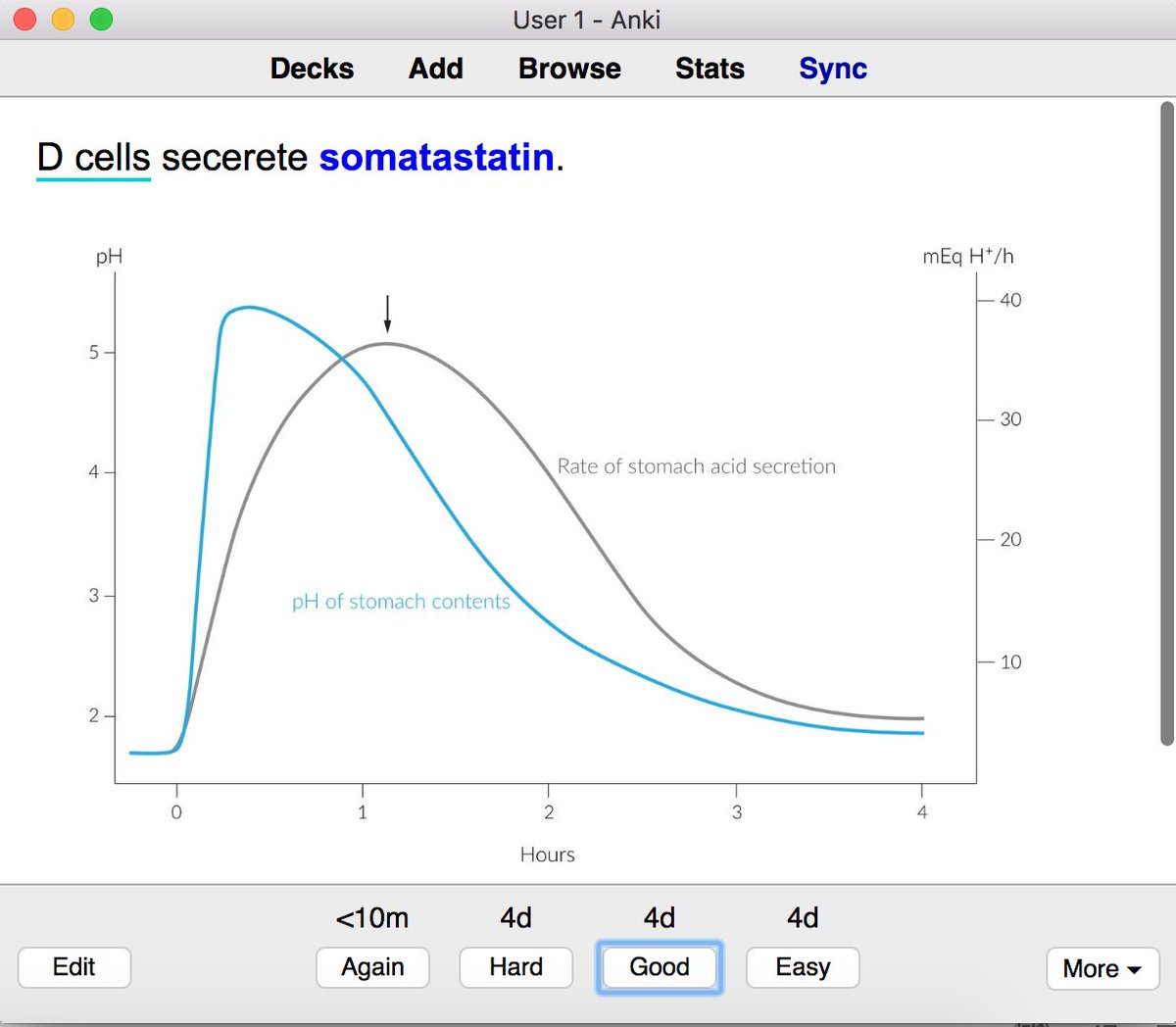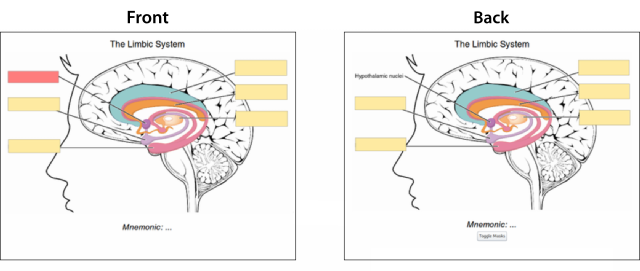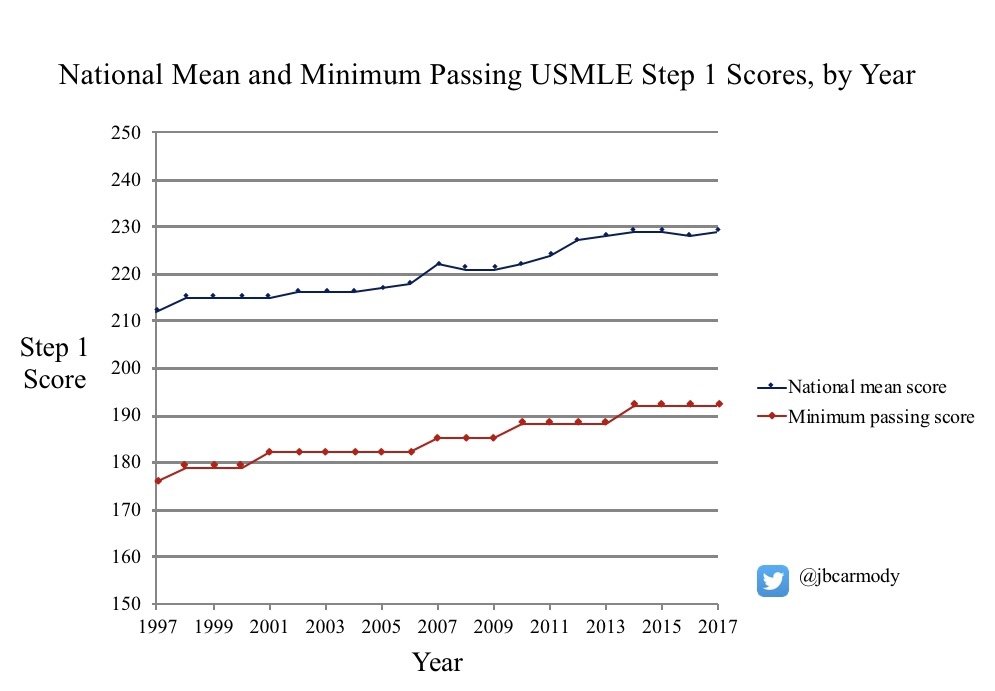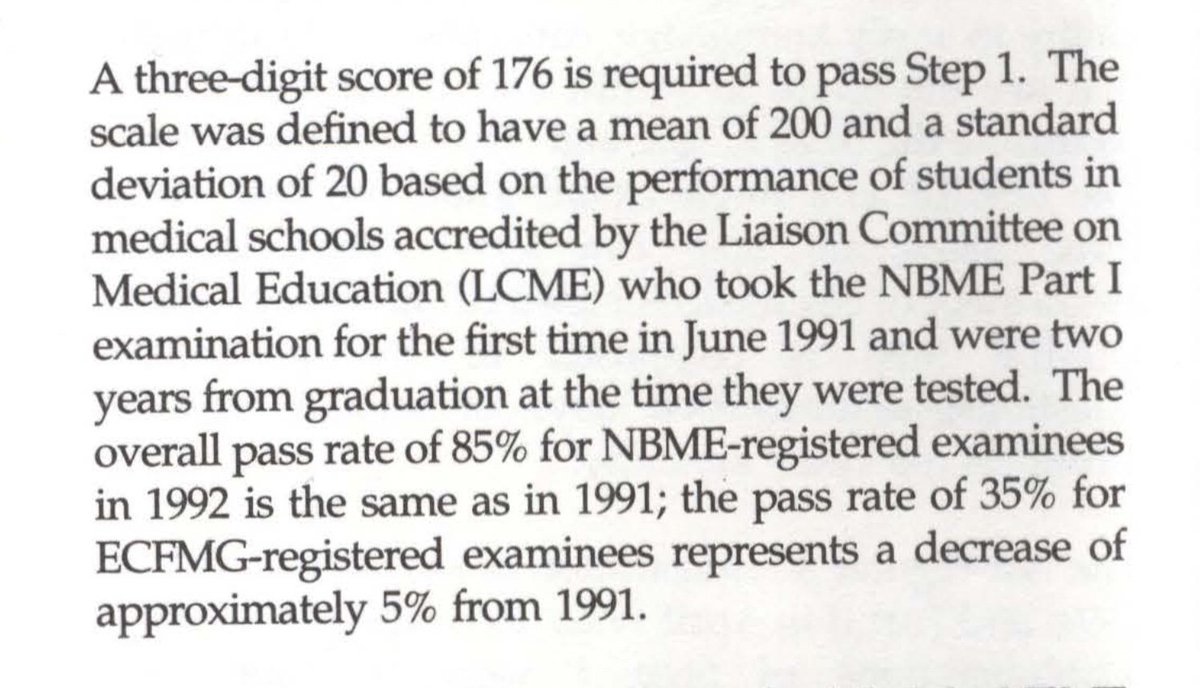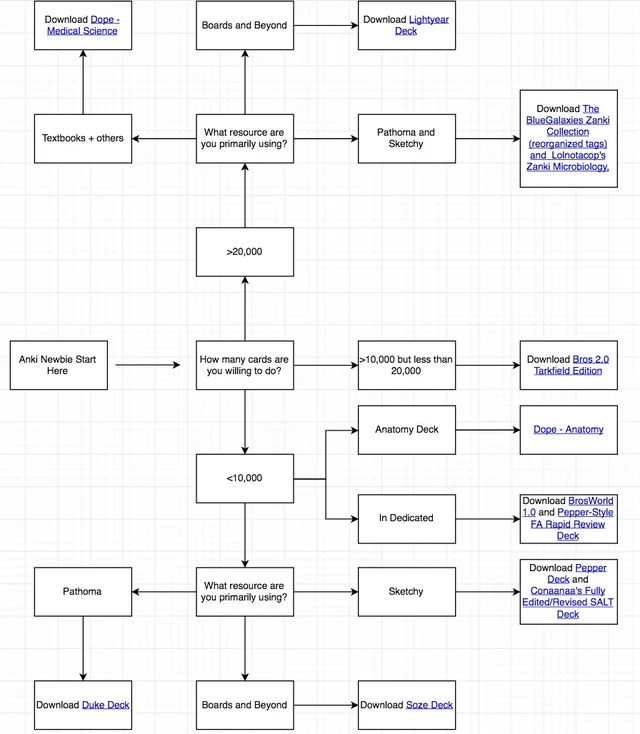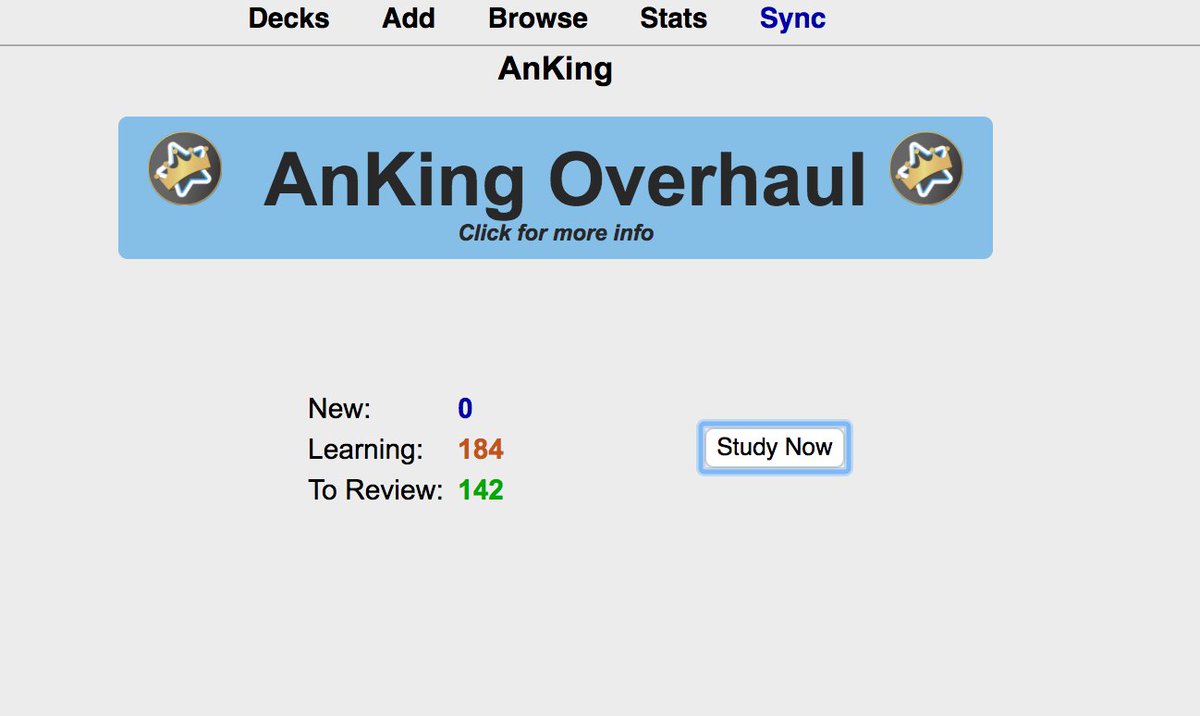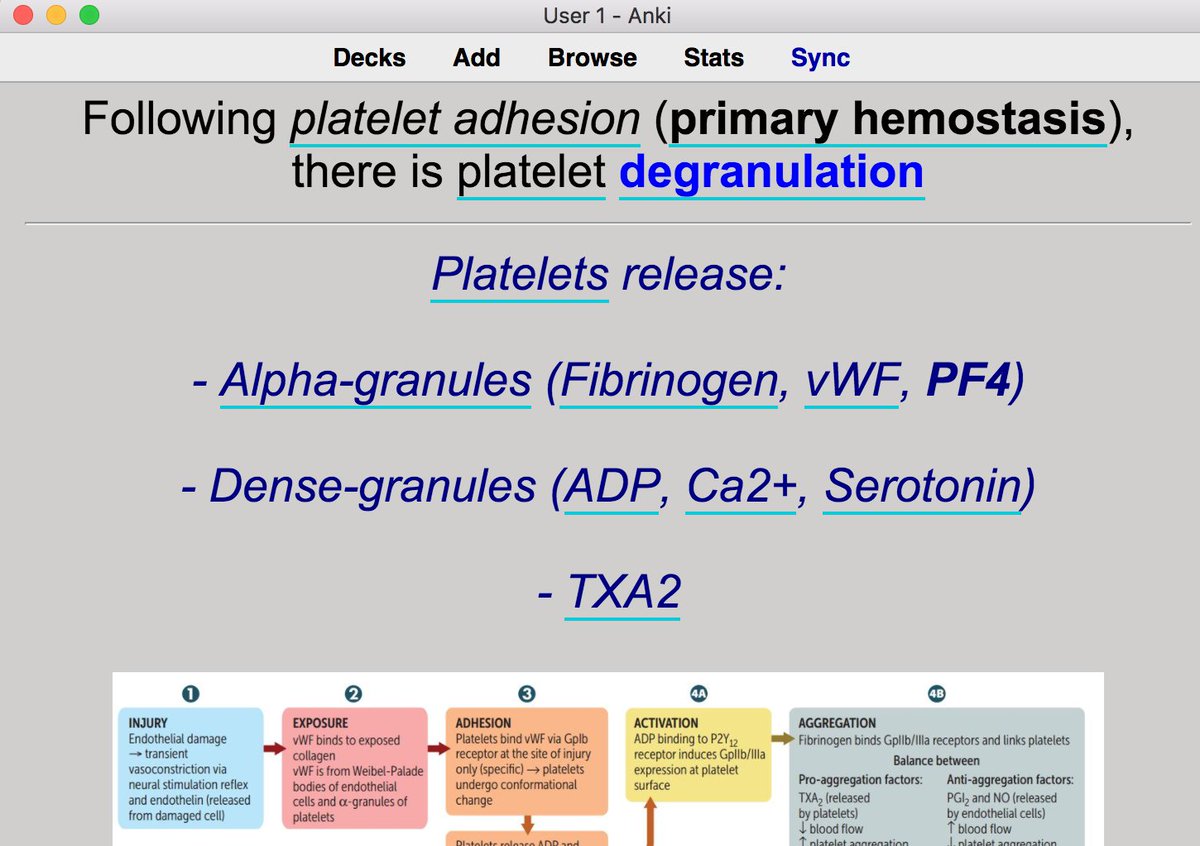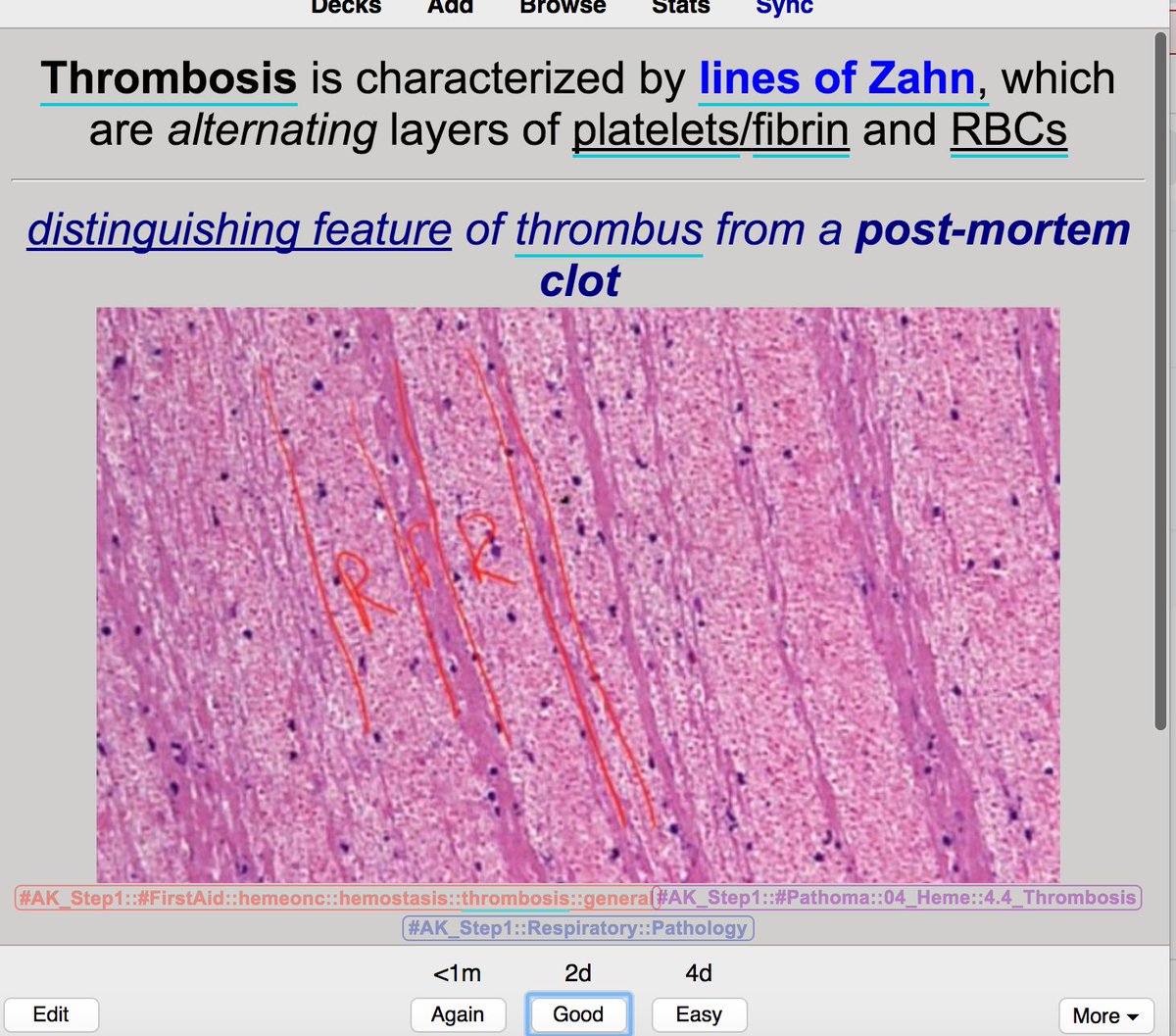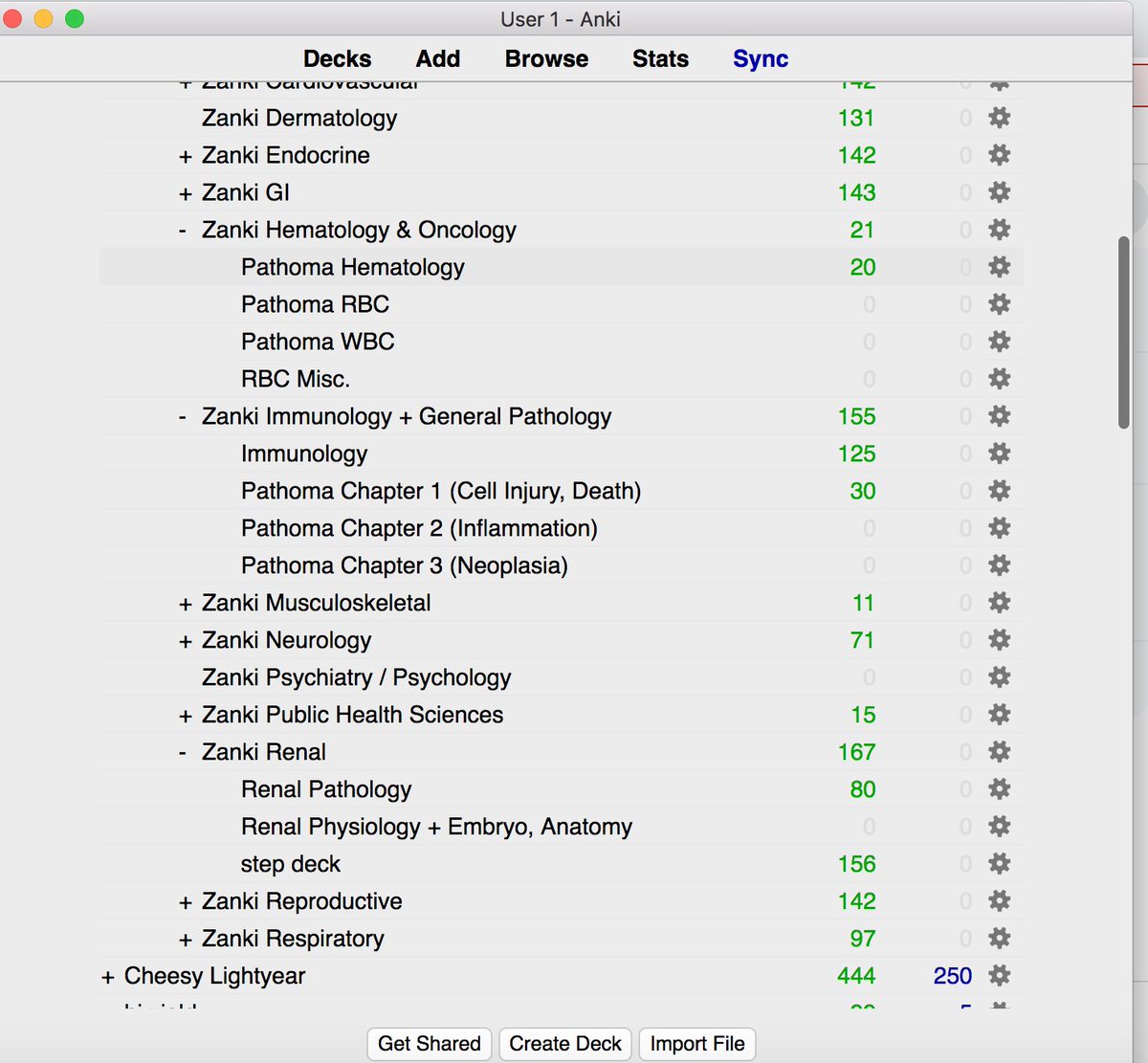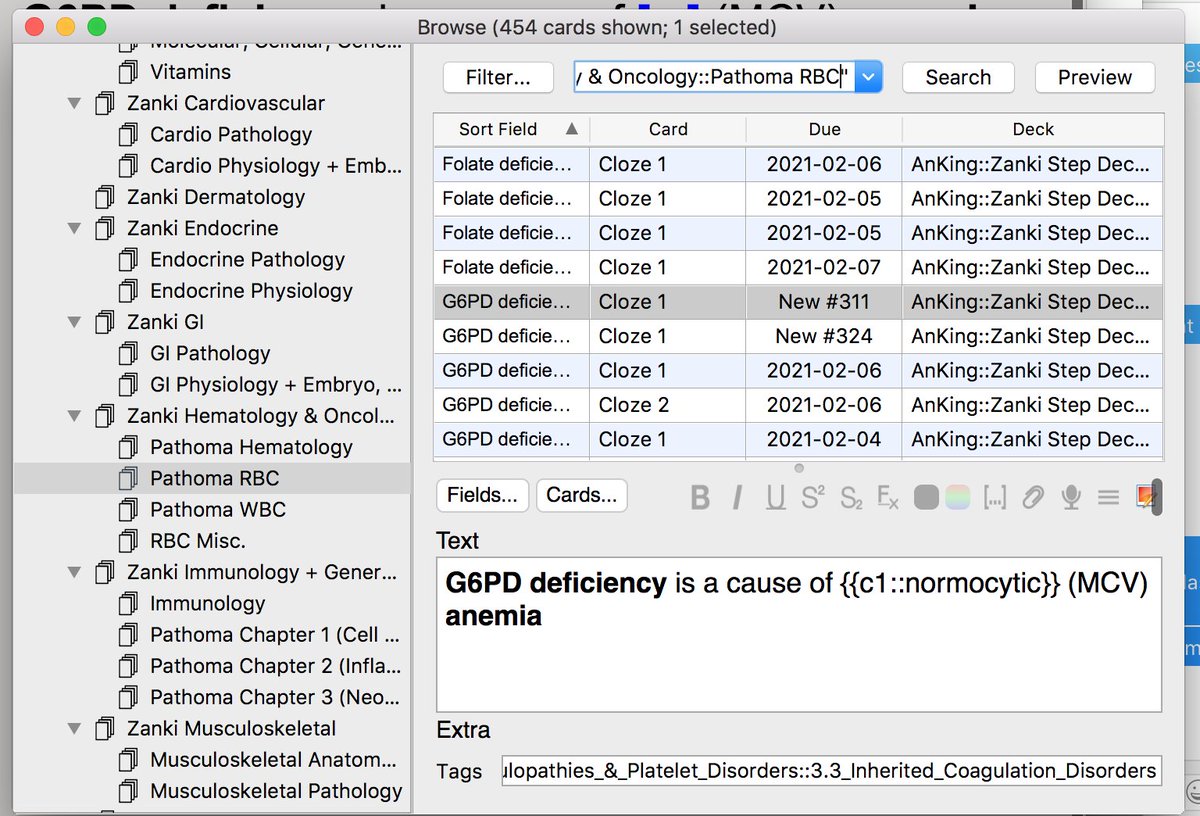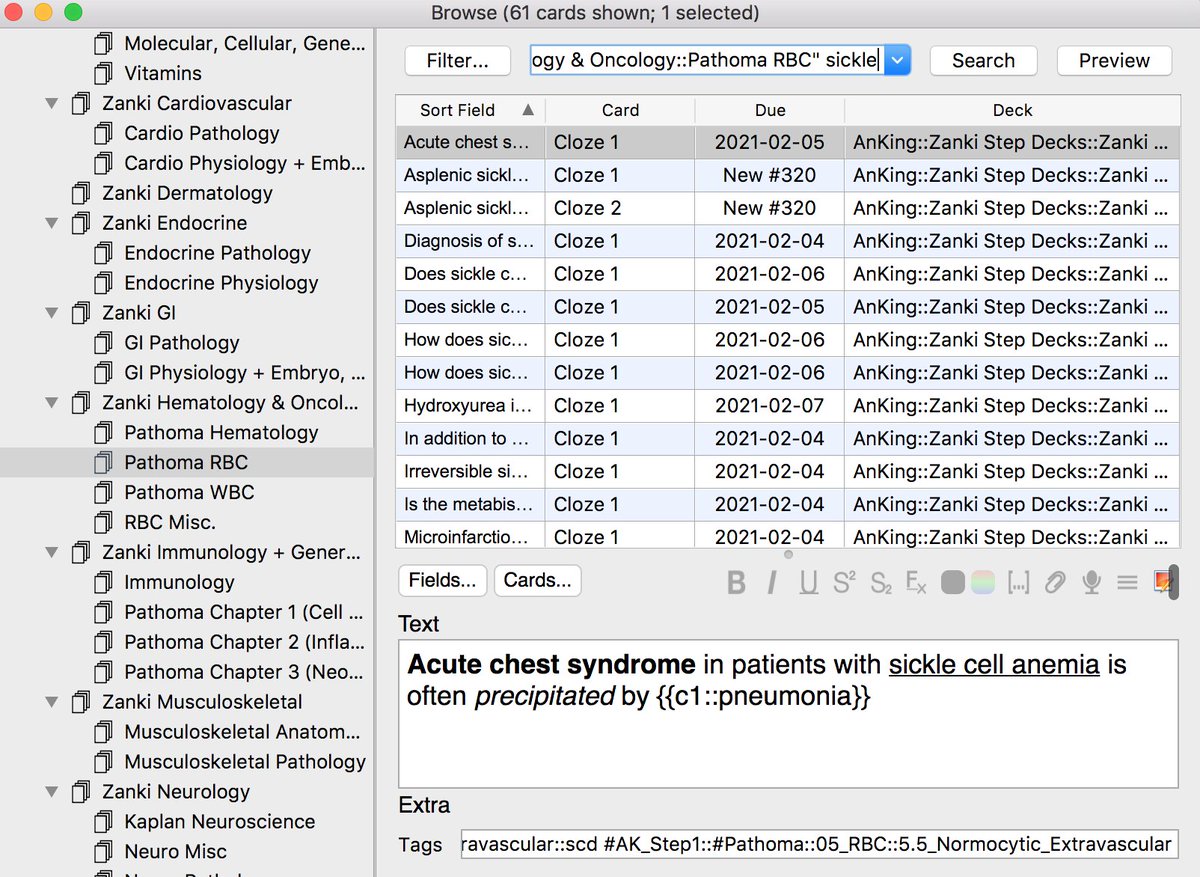Picture this: you're on the wards doing teaching with a group of medical students, and you ask them a question. One of the students answers almost immediately, almost on instinct. You ask them a follow-up question, and they aren't able to explain *how* they knew the answer.
What's up with that?
I'd bet your student used Anki to memorize that fact. What I'm describing is a common feeling for those of us who use this application, we get a gut feeling about the correct answer and surprisingly, it's usually correct.
I'd bet your student used Anki to memorize that fact. What I'm describing is a common feeling for those of us who use this application, we get a gut feeling about the correct answer and surprisingly, it's usually correct.
 What's Anki and where do you get it?
What's Anki and where do you get it?Anki is an open access software available for phones (paid version) and PC/Mac. Check it out here:
https://apps.ankiweb.net/
 How does it work?
How does it work?Anki uses spaced repetition to optimize retention. Correctly answered cards are advanced to the next, less frequent setting, while incorrectly answered cards return to the first setting for more aggressive review and repetition.
 How does it work?
How does it work?Anki users tell the algorithm how confident they are in the knowledge they need to answer the question correctly by choosing one of 3-4 buttons at the bottom of the "notecard." See below.
Of note, this spaced repetition algorithm is what sets Anki apart from its competitors: quizlet, normal notecards you write by hand (??ok Laura Ingalls Wilder), studyblue, etc.
Let's hit on some more nuts and bolts before we get to the interesting stuff.
I can tell Anki how many new and review notecards I want to do per day. Anecdotally, the amount of cards I can handle per day has gone up significantly since I started using Anki.
I can tell Anki how many new and review notecards I want to do per day. Anecdotally, the amount of cards I can handle per day has gone up significantly since I started using Anki.
There are different types of Anki notecards that can be made. My favorite kind is a Cloze deletion, which refers to the blue area. I hit space and the answer reveals itself.
Can you guess what I'd do next?
Answer: Choose one of the bottom toolbar options
Can you guess what I'd do next?
Answer: Choose one of the bottom toolbar options
Thank you so much for this flawless segue into premade anki decks, @EmpiricGame. https://twitter.com/EmpiricGame/status/1357132190950170624?s=20
Believe it or not, medical students all across the country are using the same anki decks.
How? Also, why?
How? Also, why?
To answer "why," I quote @jbcarmody.
"I do not think that medical students today are any smarter than those 10-20 years ago. Instead... they are squeezed more – by the intense pressure to achiever higher and higher scores on Step 1 for residency."
https://thesheriffofsodium.com/2019/01/20/a-peek-inside-the-usmle-sausage-factory-setting-the-step-1-minimum-passing-score/
"I do not think that medical students today are any smarter than those 10-20 years ago. Instead... they are squeezed more – by the intense pressure to achiever higher and higher scores on Step 1 for residency."
https://thesheriffofsodium.com/2019/01/20/a-peek-inside-the-usmle-sausage-factory-setting-the-step-1-minimum-passing-score/
Back in the "day," a score of 176 was required to pass Step 1. The passing score now is 194 BUT to be a competitive application we need to score in the 240s.
Like @jbcarmody says, we're not smarter than medical students 10-20 years ago. There's just more pressure on us to score well on Step 1. Thus, we need to get efficient at memorizing minutiae that sets us up for a score that sets us apart from our peers.
I guess it's ironic, then, that we do accomplish this by all using the same Anki decks.
Let's all head over to the reddit page for medical school / anki where there is a lovely flowchart that tells us which one is the right premade deck for us.
https://www.reddit.com/r/medicalschoolanki/comments/9ztgf3/updated_flowchart_guide_to_medicalschoolanki_step/
https://www.reddit.com/r/medicalschoolanki/comments/9ztgf3/updated_flowchart_guide_to_medicalschoolanki_step/
I use the Anking deck. Many students consider this to be the best of the premade decks because it is based on the Zanki and Lolnotacop decks. Don't ask me why they're named like this. I don't know.
This deck is based on, and references, other resources that students use. The picture at the bottom of this card is from First Aid, a study guide for Step 1.
This card has a screenshot from Pathoma, which is another resource Ill make a thread about eventually. This crosstalk is really nice, and none of it requires us to waste the time to make notecards ourselves.
It is organized by organ module. Many students, myself included, even if they watch lectures from school, will use these notecards to study for school exams (as opposed to making notecards from school lectures).
Someone asked if these are curated or monitored by someone. Sort of, I guess? They are posted on reddit and many of the big deck maintain-ers have mechanisms by which to submit feedback or suggestions for corrections.
Subjectively: Anki works well but it is not a pleasant thing to use. I think I gave myself carpal tunnel from just sitting on the couch and hitting the spacebar. Your eyes glass over. You forget to blink. It slooowly drains the life out of you.
I'd encourage lecturers (if you're so inclined) to download Anki on your laptop (you can delete it), and grab one of the big decks (Anking can be downloaded here: https://www.ankipalace.com/step-1-deck ) and just flip through the cards related to what you're lecturing on.
You can even hit "browse" and search by topic. For example I searched for "sickle" and it's pulled up all the cards related to sickle cell disease.
I promise you, this app is effective. If you're a resident or fellow studying for a board exam and you need to just nail down some facts, I would highly recommend it. The spaced repetition does work.
A question I believe @ShannonOMac asked earlier is do I think these secondary resources will persist despite Step 1 going p/f. I really do. There are decks for shelf exams, and I think my generation of medical students will make them for our boards.
The pain of anki comes from the uselessness of the facts we're forced to memorize, which is caused by a scored Step 1. The effectiveness is undeniable. You can use it for anything.
lmao anways back to anki
this is well stated. the tweet quoted is me getting excited about meeting one of the shared deck makers lol https://twitter.com/chethanr/status/1357184321774186497?s=20

 Read on Twitter
Read on Twitter

